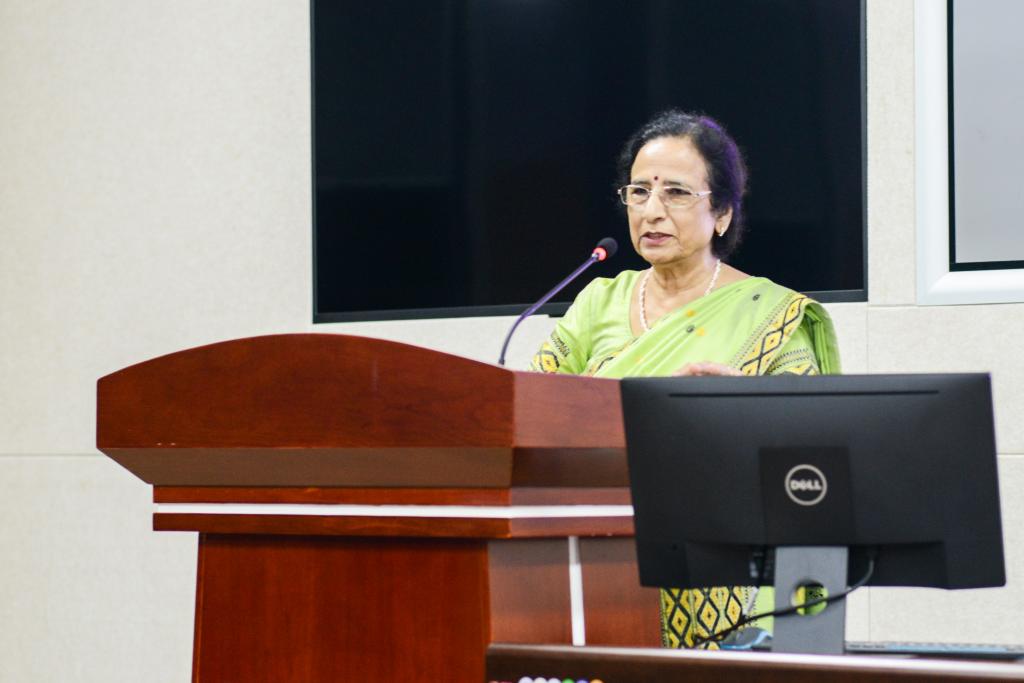On the evening of September 26, Prof. Dipti Tripathi, former Dean in the Sanskrit Department of University of Delhi, gave a lecture about the Indian Nyāya Philosophy. This was the third time Prof.Tripathi has been invited to visit Wuhan University, according to Cao Yan, associate professor of the Department of Religious Studies. Prof. Dipti Tripathi shared the topic of Veda and Yoga with students and teachers of the School of Philosophy in 2014 and 2016.
Nyāya Philosophy is one of the six Philosophical systems in India. The Nyāya is called sometimes Tarkavidyā or the science of debate. The Indian Nyāya school seeks to restore the traditional substances, the soul within and nature without, but not on the basis of mere authority.

In the lecture, Professor Dipti Tripathi firstly gave a brief overview of the ṣaddarśana in India, including Mīmāṃsā, Vedānta, Sāṃkhya, Yoga, Vaiśeṣika and Nyāya philosophy. After introducing the history and schools of Nyāya, Prof. Dipti Tripathi elaborated on the Nyāya metaphysics and epistemology. Based on the classical texts of the Nyāya, the Nyāya metaphysics could be divided into sixteen Padārthas(catagories). The first category is Pramāna, which refers to the means of knowledge. Setting up the epistemological relationship between smoke and fire, Prof. Dipti Tripathi expounded two different aspects of knowledge acquisition. One is the method of knowledge acquirement, the other is the correct knowledge itself. The second category is Prameya, which means the object of cognition. In the philosophy of the Nyāya, there are twelve different types of objects of cognition, including subjective and objective types, which must be understood on individuals’liberation from the cycle of life and death. Prof. Dipti Tripathi pointed out that there are some similarities with Buddhism in this respect. Meanwhile, the sixteen Padārthas also include Saṃśaya(doubt), Prayojana(aim), Dṛṣṭānta(example), Siddhānta(doctrine), Avayava(members of syllogism), Tarke(hypothetical reasoning), Nirṇaya(settlement), Vāda(discussion), Jalpa(wrangling,getting into an argument), Vitaṇḍā(caviling), Hetvābhāsa(fallacy), Chala(quibbling), Jāti(sophisticated refutation)and Nigrahasthāna(point of defeat).
Through the introduction of the history and philosophical methodology of Nyāya, Prof. Dipti Tripathi concluded that the Nyāya philosophy contains four different aspects, the theory of knowledge, the theory of physical world, the theory of individual and liberation, and the theory of God.
During the questioning session, the teachers and students exchanged ideas enthusiastically and held discussions with Professor Dipti Tripathi about the differences between Nyāya and Buddhist philosophy in terms of liberation, and the relationship between regional philosophy and dominant philosophy.



